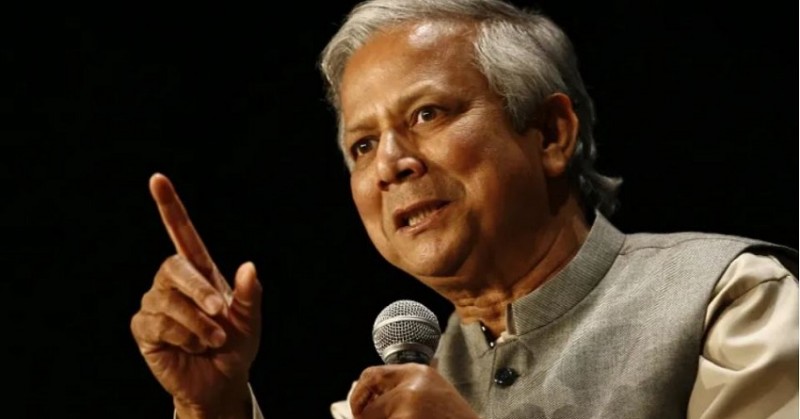
Nobel Peace Prize winner Muhammad Yunus, known for his dedication to helping impoverished communities and his vocal opposition to ousted leader Sheikh Hasina, has been appointed to head Bangladesh's interim government.
This decision follows Hasina's resignation and her departure from the country amid widespread unrest. Yunus will act as the caretaker prime minister until new elections can be organized. This appointment was made during a meeting on Tuesday night, attended by student protest leaders, military officials, civil society representatives, and business figures.
Sheikh Hasina was forced to flee on Monday after weeks of protests against a government job quota system, which escalated into a broader challenge to her 15-year rule. Her tenure, marked by economic growth but also by increasing authoritarianism, faced intense scrutiny.
Hasina's exit has plunged Bangladesh into a political crisis. The military has taken temporary control, though its role in the interim government remains unclear after the president dissolved Parliament on Tuesday to pave the way for elections, according to The Associated Press.
Student leaders spearheading the protests have called for Muhammad Yunus, currently in Paris advising Olympic organizers, to lead the interim government.
Yunus described her resignation as the country's “second liberation day,” while Hasina had once labeled him a “bloodsucker.” The 83-year-old is a well-known critic and political adversary of Hasina.
Who is Muhammad Yunus?
Muhammad Yunus, an economist and banker, received the Nobel Peace Prize in 2006 for his pioneering work with microcredit, which aims to help impoverished individuals, particularly women. The Nobel Committee honored Yunus and his Grameen Bank for promoting economic and social development from the grassroots level.
Yunus founded Grameen Bank in 1983 to provide small loans to entrepreneurs typically ineligible for traditional credit. The bank's success in reducing poverty has inspired similar microfinance initiatives worldwide.
However, Yunus's relationship with Sheikh Hasina deteriorated in 2008 when her government initiated investigations into him. This conflict arose after Yunus announced plans to form a political party in 2007 during a period of military-backed rule, although he never pursued this initiative.
During the investigations, Hasina accused Muhammad Yunus of using coercive methods to collect loans from poor rural women while leading Grameen Bank, claims which Yunus has denied.
Bangladesh Parliament Dissolved After Sheikh Hasina Flees Amid Protests
Bangladesh Unrest: 8 Dead, 84 Injured in Jessore Hotel Arson Attack
India's Early Warning: General Waker-uz-Zaman's Rise and Sheikh Hasina's Resignation